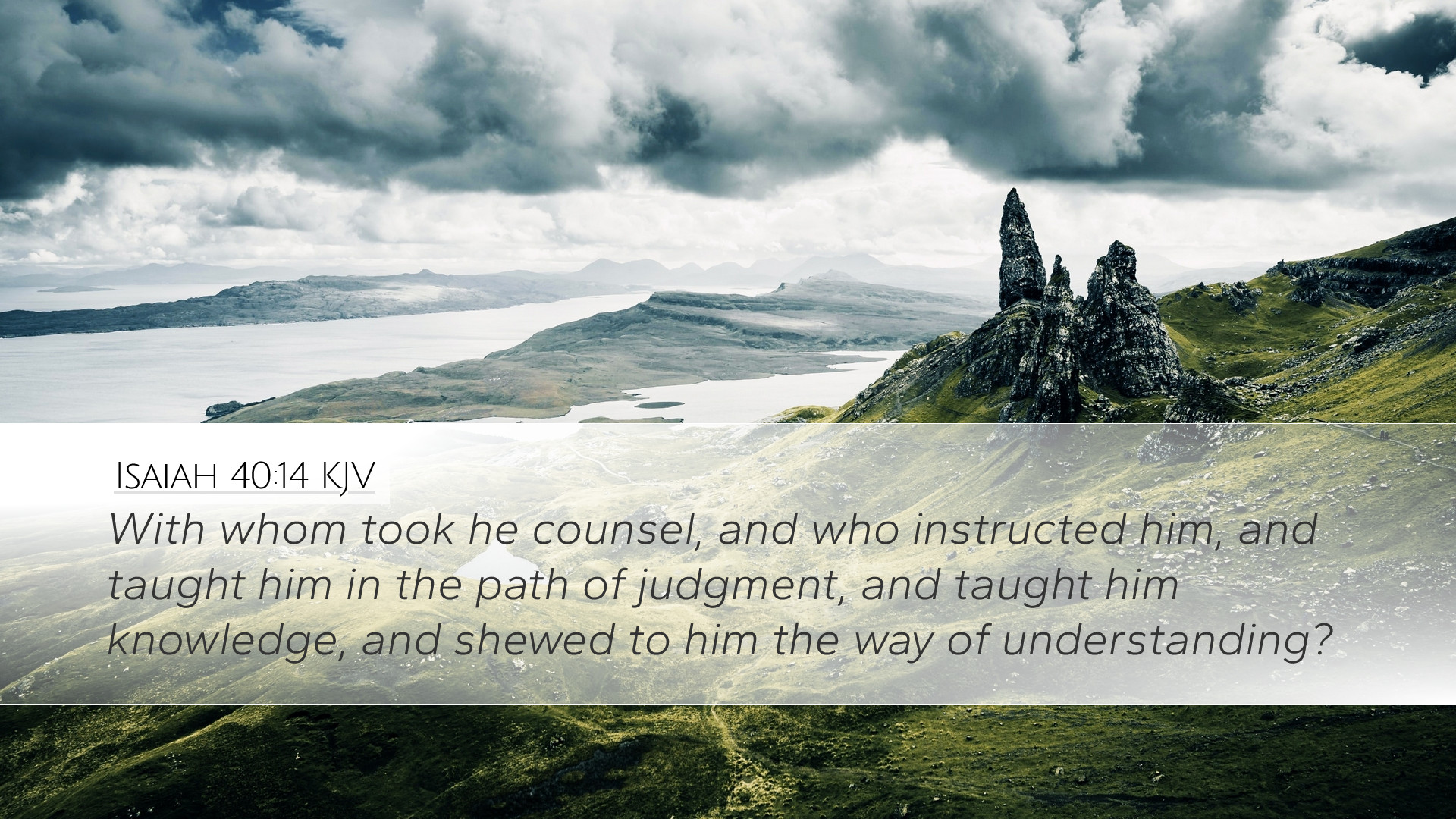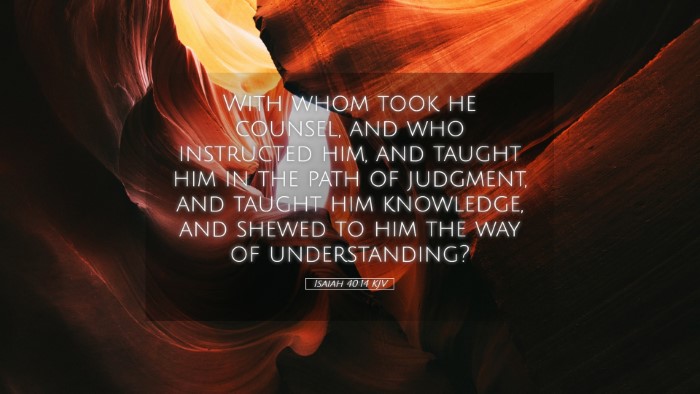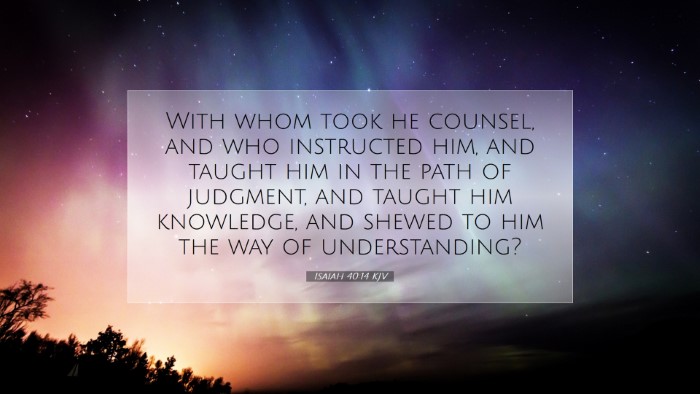Commentary on Isaiah 40:14
Isaiah 40:14 (KJV): "With whom took he counsel, and who instructed him, and taught him in the path of judgment, and taught him knowledge, and showed to him the way of understanding?"
The context of this verse is pivotal in understanding the nature of God. Isaiah, speaking to a people burdened with despair, emphasizes the sovereignty and wisdom of God in contrast to human counsel. This verse encapsulates a profound theological truth that has implications for pastoral care, theological discourse, and personal faith.
Divine Counsel and Instruction
Isaiah employs rhetorical questions to underline the uniqueness of God's wisdom. As Matthew Henry points out, God's counsel is unencumbered by human limitation. He does not require input or instruction from any created being:
- “God does not need advice from anyone; His wisdom is inherent and absolute.”
- “His judgments are not made on the basis of others’ knowledge or expertise.”
Albert Barnes expands on this theme by noting that there is no capacity in creation to teach or guide the Creator. Any counsel that may seem wise in human terms pales in comparison to God's omniscient understanding:
- “He is the source of all knowledge and understanding; thus, the wisdom of the world is foolishness before Him.”
- “This verse serves as a bold declaration of God’s supremacy and the futility of idol worship that seeks to elevate created beings to a position of divine counsel.”
The Path of Judgment
The phrase "the path of judgment" suggests a divine order and moral framework established by God. Adam Clarke highlights that God's judgments are perfect, guided by His holy nature:
- “In matters of justice and righteousness, no one can claim to be God’s equal; His ways are clearly defined and righteous.”
- “This indicates not only God’s ability to judge but also His disposition to teach His creation about righteousness.”
Knowledge and Understanding
The keywords 'knowledge' and 'understanding' affirm that true enlightenment comes from God alone. Theologians have often referenced these attributes as essential for both personal and communal discernment in the faith community. Matthew Henry observes:
- “God reveals knowledge to those who seek Him, making the path to wisdom accessible but grounded in His truth.”
- “In our quest for understanding, we must remember to align our insights with divine revelation.”
Albert Barnes further emphasizes that the lack of need for instruction suggests God's complete sovereignty over creation:
- “God's understanding is infinitely above that of all creatures, illustrating that His ways are not only higher but also transcendent.”
The Role of Faith in Understanding
Faith plays a crucial role in grasping the depths of God's wisdom. When one recognizes the limitations of human understanding, it leads to a more profound appreciation of God's infinite wisdom. Adam Clarke encourages believers to cultivate a sense of humility in approaching divine truths:
- “As we study scripture and seek understanding, let us resolve to lean not on our own understanding, but to acknowledge Him in all our ways.”
Applications for Pastors and Theologians
This verse holds significant implications for pastoral ministry and theological reflection. Understanding the nature of God as one who offers wisdom without counsel encourages pastors to lead their congregations towards reliance on divine truth:
- “Encourage congregants to trust in God's guidance over societal or cultural wisdom.”
- “Emphasize prayer and the study of God's word as primary means of seeking divine counsel.”
Conclusion
Isaiah 40:14 serves as a reminder of God's sovereignty and the futility of human autonomy in understanding divine matters. As we reflect on this passage, let us continually seek the Lord's wisdom, recognizing our dependence on His instruction and guidance. The call to humility and genuine faith in His omnipotence is vital for a flourishing spiritual life, both personally and in the wider faith community.


